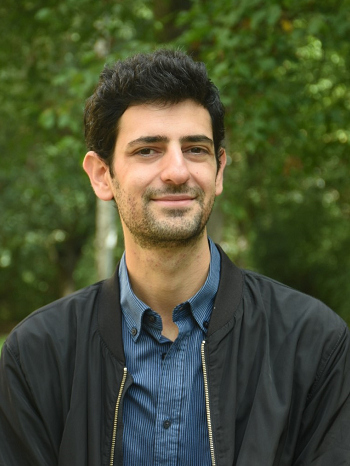Mattia Lauretti M.A.

Ancient Objects and Visual Studies (AOViS)
Classical Archaeology
Institut für Klassische Archäologie
Fabeckstraße 23-25
14195 Berlin
2018 – 2021
Master of arts an der Università degli Studi della Tuscia in den Studiengängen Archäologie und Kunstgeschichte, Klassische Archäologie. (110/110 cum laude).
03 – 08/2020
Gewinner des Erasmus-Stipendiums an der Freien Universität Berlin (Klassische Archäologie)
2015 – 2018
Bachelor of arts an der Università degli Studi della Tuscia (Italien) in der Fachrichtung Kulturerbe, Cultural Heritage (110/110 cum laude)
2015
Abitur am wissenschaftlichen Gymnasium (in Italien)
Praktische Erfahrungen:
2019 – 2020 (Herbst, Winter)
Keramik Praktikum in Bolsena (Viterbo, Lazio)
2018 (Sommer)
Ausgrabung in San Valentino (Viterbo, Lazio)
2017 (Sommer)
Ausgrabung in ‘Campo della Fiera’ (‘Fanum Voltumnae’; Orvieto, Umbria)
2016 (Sommer)
Ausgraung in Carsulae (Terni, Umbria)
2016 (Sommer)
Ausgrabung und Keramik Praktikum in Ferento (Viterbo, Lazio)
Reshaping Sardinian material culture under Roman rule. Cultic reuse of the Nuraghe Su Mulinu di Villanovafranca
This research project seeks to investigate how the Nuraghe Su Mulinu was reused for cultic purposes in the Roman period (3rd century BCE to 2nd century CE) through an analysis of unpublished votive material found in situ. I will focus mainly on the material discovered in ‘Chamber E’, which was reused as a sacellum from the Iron Age until the Roman Imperial period. Not only have hundreds of Nuragic and Punic lamps been found there, but also an abundance of artefacts from the Roman period, such as Roman lamps, black glazed ware, Campanian pottery, terra sigillata, coins, and glass artefacts. Thus, the main goal is to assess this collection of material in order to reconstruct the dynamics of the cult in the Roman period, establishing an exact chronology of the cultic reuse of the nuraghe, and how the cult developed throughout the Roman age. I will also explore whether there were ‘native’ elements of continuity in the votive material dating to the Roman period, and if the material culture had already assumed ‘Italic’ or ‘Roman’ traits before the Roman conquest of the island (237 BCE). Finally, this study falls within the umbrella of studies of cultural changes. Outdated perspectives of Sardinian history and archaeology, characterized as ‘resistance’ to the ‘foreign’ invaders, concluded that the reuse of nuraghi was a form of cultural resistance of the ‘Sardinians against the Romans. However, I want to move away from this dichotomy, and analyse cultural changes through the new lens of postcolonial theories.
